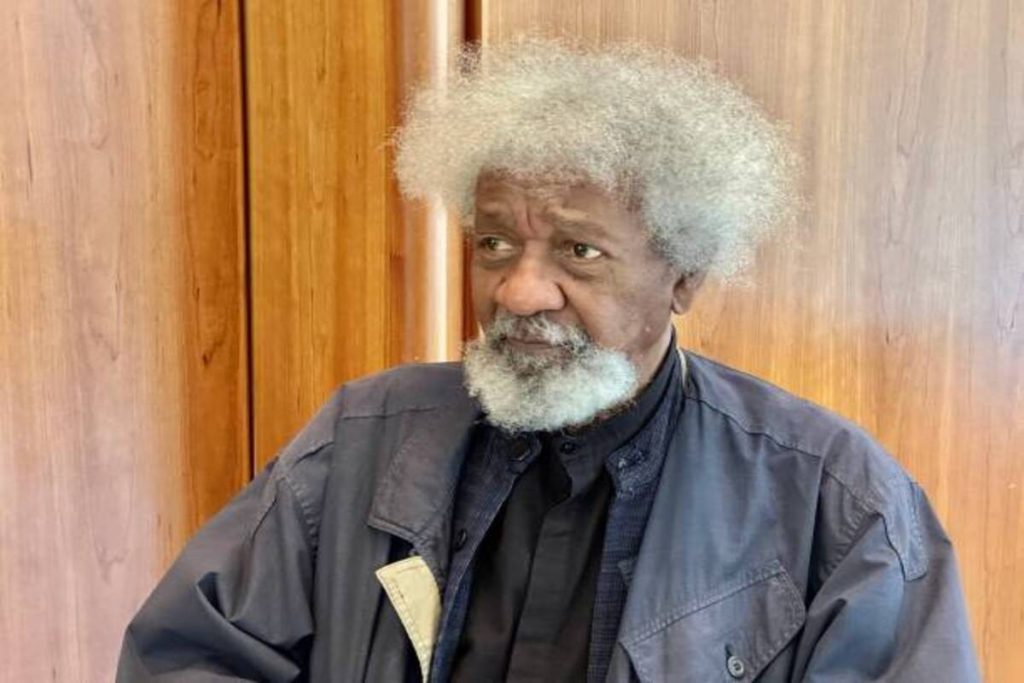
Wole Soyinka, Nigerian playwright, poet, and essayist, captured in Turin on May 21, 2023, Leonardo Cendamo/Getty Images.
LAGOS, Nigeria (Epicstorian News ) — Nigerian Nobel laureate Wole Soyinka has revealed that the United States government revoked his non-immigrant visa, a decision he said came without prior explanation and may signal a shift in U.S.–Africa travel policies.
Soyinka, 91, said the U.S. Consulate General in Lagos sent him a letter dated October 23, 2025, asking him to submit his passport for physical cancellation of his visa. The letter cited that “additional information became available” after the visa was issued.
“I have no visa. I am banned, obviously, from the United States,” Soyinka said during a press briefing in Lagos. “If anyone wants to see me, you know where to find me.”
The U.S. Embassy in Nigeria has not issued any official statement regarding the development
A long-standing relationship strained
Soyinka has maintained a long academic relationship with the United States, holding multiple teaching and fellowship positions at Ivy League universities since the mid-1990s.
However, his relationship with Washington took a symbolic turn in 2016 when he announced that he had torn up his U.S. green card and renounced his American residency.
The move came as a personal protest against the election of then-President Donald Trump, which he described as a moral statement against rising nationalism and intolerance, according to Reuters report.
Visa revocation implementations for Wole Soyinka and Nigerian Citizens
The Nobel laureate’s visa revocation comes amid broader policy tightening on non-immigrant visas for Nigerian citizens. In July, the U.S. Embassy announced that Nigerians would now receive single-entry, three-month visas instead of the previous five-year, multiple-entry permits.
The embassy said the new measure was based on reciprocity, aligning with Nigeria’s own visa issuance policies.
However, diplomats and analysts have noted that it may also reflect the U.S.’s increasing caution over global migration and border security.
While the U.S. Consulate has not confirmed whether Soyinka’s case is linked to the broader policy change, it has sparked discussions about how diplomatic and political factors may influence visa decisions involving high-profile citizens.
Soyinka’s enduring voice
Wole Soyinka remains one of Africa’s most outspoken voices on governance, justice, and civic responsibility. His decades-long advocacy for human rights and democracy has often placed him at odds with political establishments both at home and abroad.
Born in Abeokuta, Nigeria, in 1934, Soyinka became the first African to win the Nobel Prize in Literature in 1986. His works, including Death and the King’s Horseman and The Man Died, remain cornerstones of modern African literature and political commentary.
Soyinka’s recent remarks come as Nigeria grapples with economic reform challenges, political polarization, and public frustration over governance standards — issues he has consistently spoken about with candor and urgency.
Awaiting U.S. clarification
As of Tuesday, the U.S. Embassy had not responded to media inquiries regarding the reason for Soyinka’s visa revocation. The letter’s vague language citing “additional information” has fueled speculation, but no evidence yet suggests a political motive.
Related: Four killed in Douala protests over Cameroon presidential election results
For now, Soyinka appears unfazed, suggesting that the decision will not deter his global engagements or literary commitments.
“If the U.S. no longer wants me, the world is wide enough,” he said with a wry smile.





